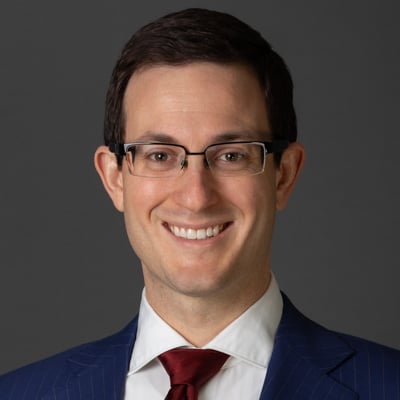Oracle Court's Java Ruling Will Hurt Innovation: Microsoft
Microsoft Corp. on Tuesday waded into Oracle Corp.’s appeal of a ruling in its fight with Google Inc. that found certain elements of Oracle's Java software were free for use under the Copyright Act, arguing the lower court’s ruling goes against settled law and spells doom for innovation in the software industry.
In an amicus curiae brief, Microsoft, EMC Corp. and NetApp Inc. told the Federal Circuit that the district court erred when it held that Oracle’s Java software packages that Google copied were not copyrightable at all, claiming the court failed to consider whether a collection of elements in the Java software platform represents a copyrightable, original combination.
In analyzing copyrightability by considering only the portions of the Java code that Google admittedly copied, as opposed to the Java work as a whole, the lower court disregarded and misapplied basic copyright principles, Microsoft contends.
“This mode of analysis is backwards,” Microsoft said. “Under both prevailing doctrine and common sense, assessing copyrightability requires examining the allegedly infringed work in full.”
If allowed to stand, Microsoft said the district court’s ruling will undermine the system by which “widely beneficial licensing ecosystems” have been established throughout the software industry.
Without copyrighted software platforms, Microsoft and others would be forced to “retrench” and only release information about their computer programs to users and developers in very restrictive and costly ways in order to stop abuse of their innovations or threats to the integrity of their platforms, according to the brief.
“That would strike a devastating blow to innovation in the software industry, cross-industry collaboration and ultimately to downstream consumers,” Microsoft said.
Furthermore, Microsoft argues that simply recognizing a copyright in the Java platform wouldn’t necessarily mean that Google is liable for copyright infringement, because that determination relies on a second level of analysis that takes into account such doctrines as fair use, the substantial similarity requirement and the principle of idea/expression “merger.”
Such doctrines can and often do absolve legitimate concerns about the freedom to innovate and build competitive software products, however they do so in a balanced way as opposed to the district court’s “all or nothing” approach to the question of whether Oracle’s software was copyrightable at all, according to Microsoft.
For example, in the Ninth Circuit’s decision in Sony Computer Entertainment Inc. v. Connectix Corp., the appeals court found that it was fair use to reproduce the copyright-protected portions of certain computer software in order to reverse-engineer parts of the work that were outside the scope of copyright protection.
Microsoft said it takes no position on whether Google’s challenged conduct ultimately amounts to infringement, but instead argues that a robust field of doctrines exists that allow courts to balance the interests of encouraging innovation in the first instance and allowing necessary subsequent competition and innovation.
“The district court’s apparent attempt to use copyrightability — alone — as an all-purpose tool to achieve those complex and subtle goals, was contrary both to existing law and to sound policy designed to protect and foster innovation in this vital area,” Microsoft said.
Spokesmen for Microsoft and Google declined to comment. Representatives for Oracle could not be immediately reached for comment Wednesday.
Oracle Corp. brought its opening brief in the appeal on Feb. 11, blasting the lower court for applying "software exceptionalism" to copyright law, and saying it had created a dangerous carve out in copyright law that deprives complex software of the same necessary protection afforded to other works.
Microsoft is represented by Gregory G. Garre and Lori Alvino McGill of Latham & Watkins LLP.
Oracle is represented by Annette L. Hurst, Gabriel M. Ramsey, Elizabeth C. McBride, E. Joshua Rosenkranz, Mark S. Davies, Andrew D. Silverman and Kelly M. Daley of Orrick Herrington & Sutcliffe LLP; Dale M. Cendali, Diana M. Torres, Sean B. Fernandes and Joshua L. Simmons of Kirkland & Ellis LLP; and in-house counsel Dorian E. Daley, Matthew M. Sarboraria and Deborah K. Miller.
Google is represented by Christa M. Anderson, Steven A. Hirsch, Daniel E. Jackson, Michael Soonuk Kwun and Robert A. Van Nest of Keker & Van Nest LLP.
The case is Oracle America Inc. v. Google Inc., case No. 13-1021, in the U.S. Court of Appeals for the Federal Circuit.
REPRINTED WITH PERMISSION FROM THE FEBRUARY 20, 2013 EDITION OF LAW360 © 2013 PORTFOLIO MEDIA INC. ALL RIGHTS RESERVED. FURTHER DUPLICATION WITHOUT PERMISSION IS PROHIBITED. WWW.LAW360.COM


